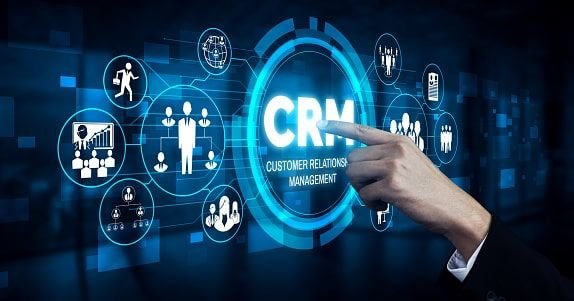Customer Relationship Management (CRM) is a technique that arranges customer contact information in a centralized database. Since then, the system has been developed to provide advanced data analytics and reporting, AI-based sales insights, automated data entry, and extensive integrations with other crucial business tools.
Using CRM software is a no-brainer if you need to organize your company’s data and get your employees on the same page. The choice of CRM software, however, is more difficult. Numerous well-liked CRM solutions exist, and the number is expanding quickly.
1. User Experience
Every CRM system enables you to collect customer data and use it to enhance your customer experience, but that requires focusing on specific features and functionalities. It will be evident in the user experience that the software builds. Large businesses that require frequent customer interaction should utilize CRM to organize data and customer engagement designed for enterprise-grade solutions.
2. Features And Functionality
Your company’s operations, clientele, and growth patterns are unique. Therefore, it’s not a good idea to commit to a set of standard, fundamental, or rigid functions. Look for flexibility in your CRM solution.
Your requirement for CRM will increase as your firm expands. Because of this, you must ensure that the CRM solution you select can be quickly upgraded to a newer, more advanced version.
3. Budget
CRM is considered to be a software as a service (SaaS), where you pay an annual or monthly subscription for each user. Depending on the supplier, the monthly cost per user might range from $0 to $50 or more. The majority of small businesses employ cloud solutions, with the exception of those in highly regulated industries where they are expected to have complete control over all of their data. If you are interested in buying a CRM solution within a nominal budget, check out Sendinblue pricing.
4. Integrations
When selecting a CRM for your company, this is among the most crucial factors to take into account.
A CRM is not something you purchase to add to your collection of various work systems but to make your business operations more efficient. The aim is to benefit your business.
Therefore, make sure that the CRM system you opt for can interface with other existing programs you use. Your CRM software should also be smoothly integrated with an ERP or other accounting program, an HR program, a website and web forms for importing new leads, billing and e-commerce platforms for recording transactions, and marketing tools.
5. Mobility
The teams of small businesses have long valued mobility. Mobile data connection has been essential for preserving open communication with clients and potential clients, particularly during the pandemic. With mobile CRM, your salespeople may check customer contact information while working remotely or update deal statuses while rushing from one appointment to the next.
The majority of cloud systems are accessible from any internet-connected device, although some CRMs offer a better mobile experience than others. Try out the mobile app before selecting your CRM program. Has the user experience been tailored for mobile devices, or is it merely a smaller, less usable version of the web application? Is mobile navigation easy to use? Do you receive the entire product line? Will it function on every mobile device used by your team?
6. Analytics
Effective CRM software lets you review your sales processes to identify what’s working and what may be more effective, in addition to facilitating your sales workflows. CRM software should also assist you in assessing the success of each team member to identify who is on track, requires more training, and merits a promotion or more commission.
All CRM solutions use advanced analytics and reporting to achieve this, although some do it more effectively than others. Look for a system that will provide the data you need to enhance your workforce and your processes while keeping your sales goals and pain points in mind. Additionally, ascertain how much of the procedure is automated.
Conclusion
No matter what the size of your business is, you must keep your requirements in mind and find a solution that best suits your budget and organizational needs. Investing in a CRM solution will definitely bring additional functionality to your operations in the future, but you must evaluate the pool of options and only select the one that fits your needs based on the points discussed above.




